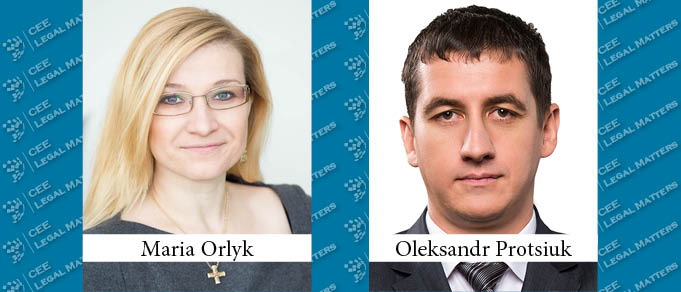An effective judiciary forms a cornerstone of a successful state that upholds the rule of law.
However, during the past few years, the state of the judiciary has become critical in Ukraine, despite a number of reforms that have been announced and implemented.
A significant problem has arisen concerning the time needed for a court to consider a case. In many instances, it takes more than a year to obtain a court decision. For example, many cases that were filed to the Kyiv District Administrative Court in 2019 are still pending review.
In 2021, the Civil Cassation Court within the Supreme Court mainly considered cases that had been filed in 2020 or earlier, and the cases filed in 2021 that it did consider were the exception. Several courts in some regions do not even have a judge with sufficient authority to hear cases. In fact, commercial courts are the only branch that functions properly in this regard.
What led to this judicial crisis in Ukraine? First, criteria regarding a judge’s qualifications were introduced as part of the reform of the judiciary and, surprisingly, not all judges were able to meet them. Second, and this is the main reason, in November 2019 the Highest Qualification Commission of Judges (HQCJ) was dismissed. The HQCJ was an authority that evaluates existing judges and candidates for judge and recommends whether they should be appointed.
Since it has been dismissed, no state body has been available to evaluate judges and it is thus impossible to appoint new judges, while in the meantime the powers of old judges are expiring.
The law dismissing the HQCJ also details the procedure for forming the new HQCJ. The main idea was that the Highest Council of Justice (HCJ) would appoint the members of the new HQCJ from among a pool of candidates recommended by a special committee acting within the HCJ. This committee, in its turn, would consist of three local judges, proposed by the Council of Judges of Ukraine, and international experts, proposed by international organizations.
The necessity of appointing international experts became a real stumbling block. And eventually, the entire chain of appointments was interrupted and put on hold, resulting in Ukrainian courts being short of judges.
In November 2021, at last, a law unblocking the work of the special committee was adopted and the committee finally gathered for a preparatory meeting. On January 21, 2021, the committee gathered for its first meeting, where it elected its leadership and adopted a number of procedural documents related to its work.
Further, following an open and public competition, the committee will elect 32 candidates for the new HQCJ, recommend them to the HCJ, and the latter will choose and appoint 16 members. According to representations from the head of the committee, their aim is to complete their part of the process by early summer 2021. Thus, there is a chance that by the end of the year Ukraine will have a newly operating HQCJ that will be able to approve new judges and thereby resolve the judicial crisis.
Of course, the courts’ ability to effectively protect rights and interests that have been violated is only viable if the time for considering cases is reasonable, while the situation in which courts consider cases for years cannot be treated as something acceptable or normal.
We may only hope that the sacrificed time and continuously invested efforts will result in building an independent and reliable judiciary that will serve as the basis for a state and society beholden to the rule of law.
By Maria Orlyk, Managing Partner, and Oleksandr Protsiuk, Counsel, CMS RRH
This article was written before the advent of the war in Ukraine and was originally published in Issue 9.2 of the CEE Legal Matters Magazine on March 1, 2022. More current articles on developments in Ukraine can be found in our #StandWithUkraine section. If you would like to receive a hard copy of the magazine, you can subscribe here.
















